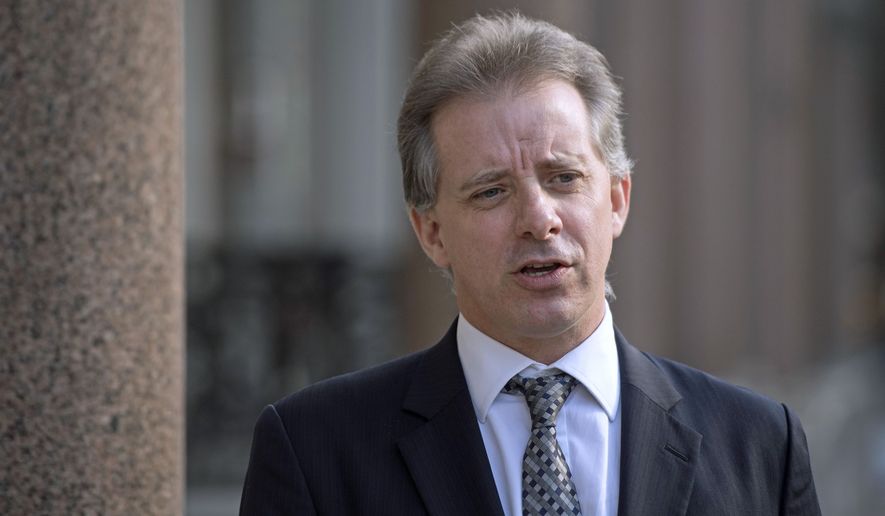When the Washington political operative behind the firm that compiled the explosive anti-Trump dossier meets with a congressional Russia probe behind closed doors Tuesday, the firm’s tangled web of funders is likely to be a main topic of interest.
Late last week Fusion GPS cofounder Glenn Simpson, a former Wall Street Journal reporter, struck a deal to be interviewed by the House Intelligence Committee as new details about the firm’s financing started to emerge.
For months, committee investigators pushed for an explanation of who supported the hiring of ex-British intelligence officer Christopher Steele to compile the dossier, which contains many unverified and salacious allegations about President Trump’s alleged Kremlin connections.
In a story where revelations seem to tumble out daily, Atlantic magazine reported Monday that WikiLeaks engaged in a lengthy correspondence with Donald Trump Jr., the president’s eldest son.
The communications, via Twitter’s private Direct Message function, lasted until June of this year, with the organization reportedly pressing the younger Mr. Trump to question the results of the 2016 vote if his father lost.
WikiLeaks published some of the most embarrassing documents and messages targeting Hillary Clinton’s campaign in 2016.
Rep. Adam Schiff, the lead Democrat in the House Intelligence Committee’s Russian-meddling probe, said the revelations were serious if true.
“That Donald Trump Jr. and WikiLeaks would discuss coordinating their efforts to highlight information damaging to Clinton … demonstrates once again a willingness by the highest levels of the Trump campaign to accept foreign assistance,” the California Democrat said in a statement.
Last month, Perkins Coie, the law firm for the Democratic National Committee and Hillary Clinton’s 2016 presidential campaign, admitted its clients paid for the dossier, leading President Trump to accuse Democrats of colluding with Russia against him.
The conservative news website, the Washington Free Beacon, had first hired Fusion GPS to do opposition research on Mr. Trump during the GOP primaries but before Mr. Steele came aboard.
Mr. Simpson’s attorney, Josh Levy, credited a change in committee leadership as the reason for agreeing to set a date to talk.
Mr. Simpson and House Intelligence Committee Chairman Devin Nunes have waged one of the year’s fiercest political and legal battles over revealing Fusion GPS’ client list and bank records.
The California Republican has pushed harder than anyone on Capitol Hill to open Fusion GPS’ books — at one point last summer sending committee staff to London to investigate Mr. Steele. The committee also subpoenaed Mr. Simpson.
The subpoena appeared to give Fusion GPS an opportunity to stage a counterattack, with the firm suing to protect its financial data. Mr. Levy argued that the records Mr. Nunes sought went far beyond the scope of the committee’s Russia investigation. The committee, he said in court, was trying to “annoy, harass and punish Fusion GPS.”
He also argued to the courts that the Nunes approach would “chill” Fusion GPS’ free speech rights and those of other firm’s engaging in opposite research for political campaigns.
The free speech issue has supporters on Capitol Hill, with some lawmakers saying privately that, beyond collecting and shopping around unverified political speculation, Mr. Simpson has not committed any crime other than being found out.
“Opposition research,” one lawmaker said, “is as American as apple pie.”
• Dan Boylan can be reached at dboylan@washingtontimes.com.




Please read our comment policy before commenting.